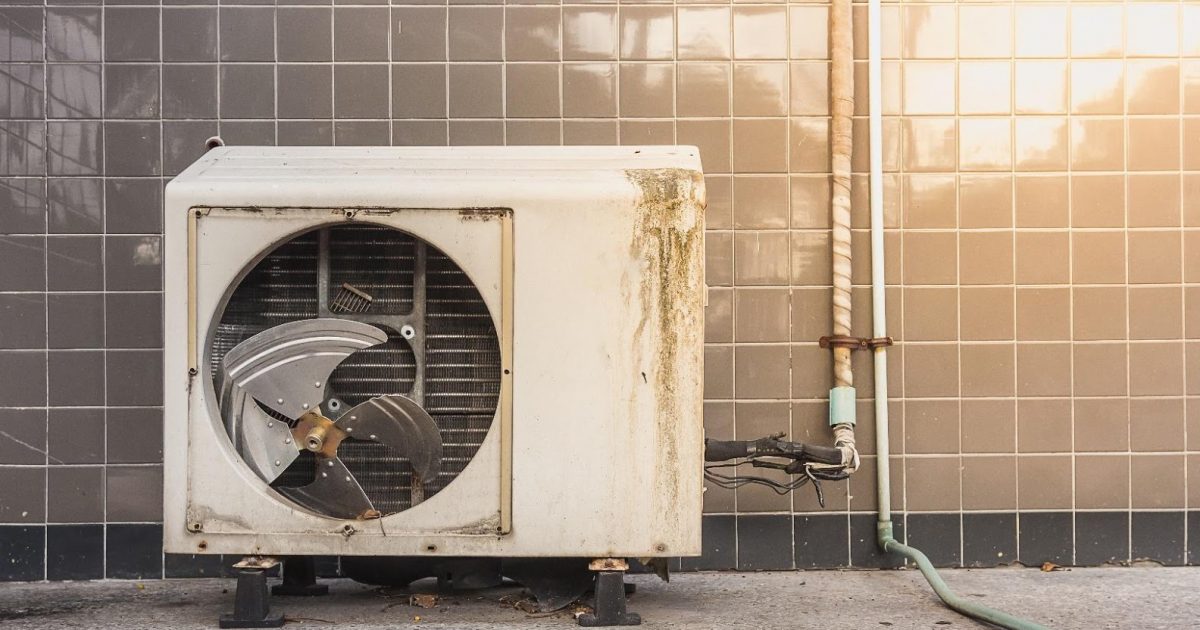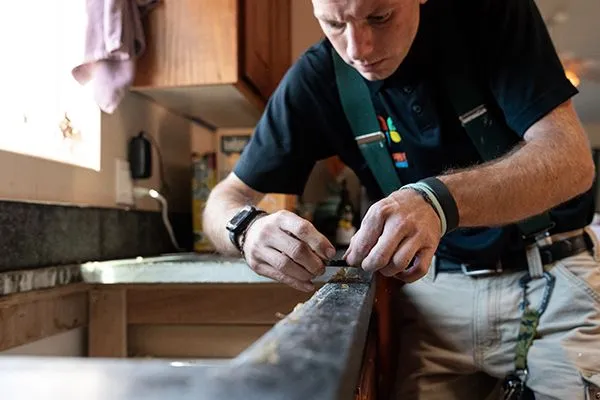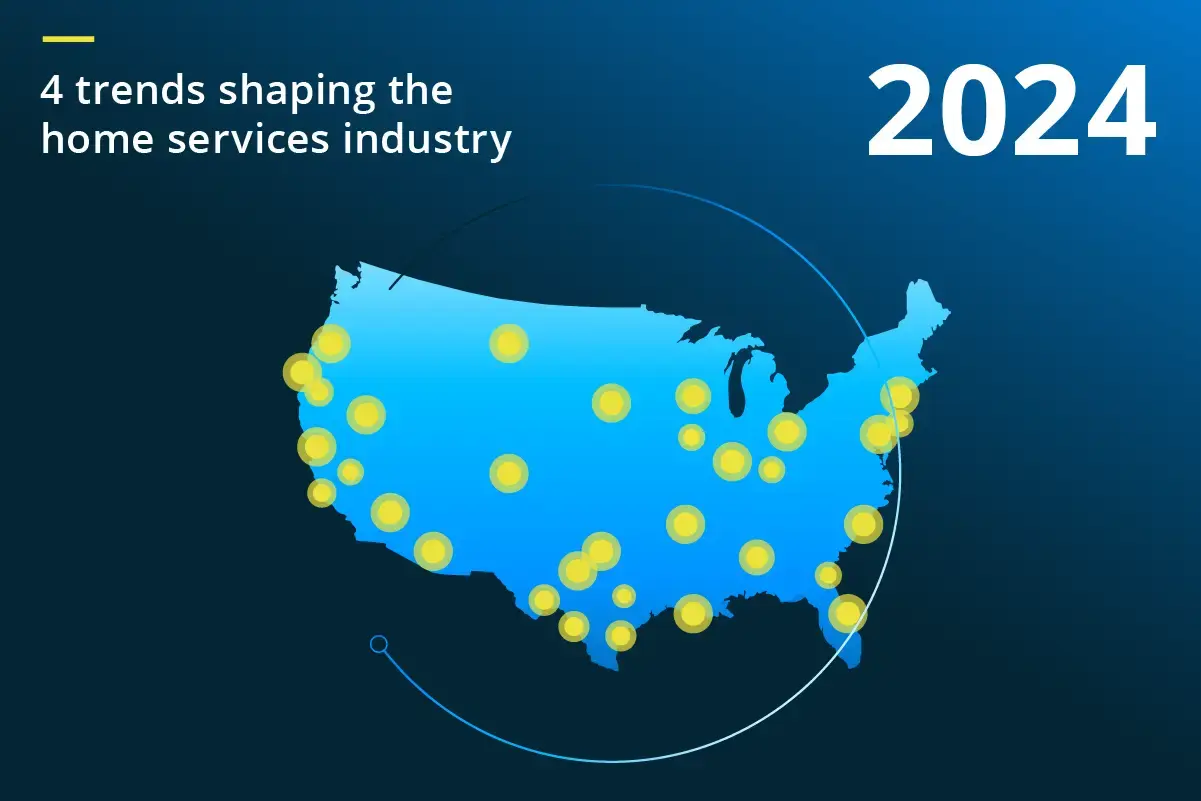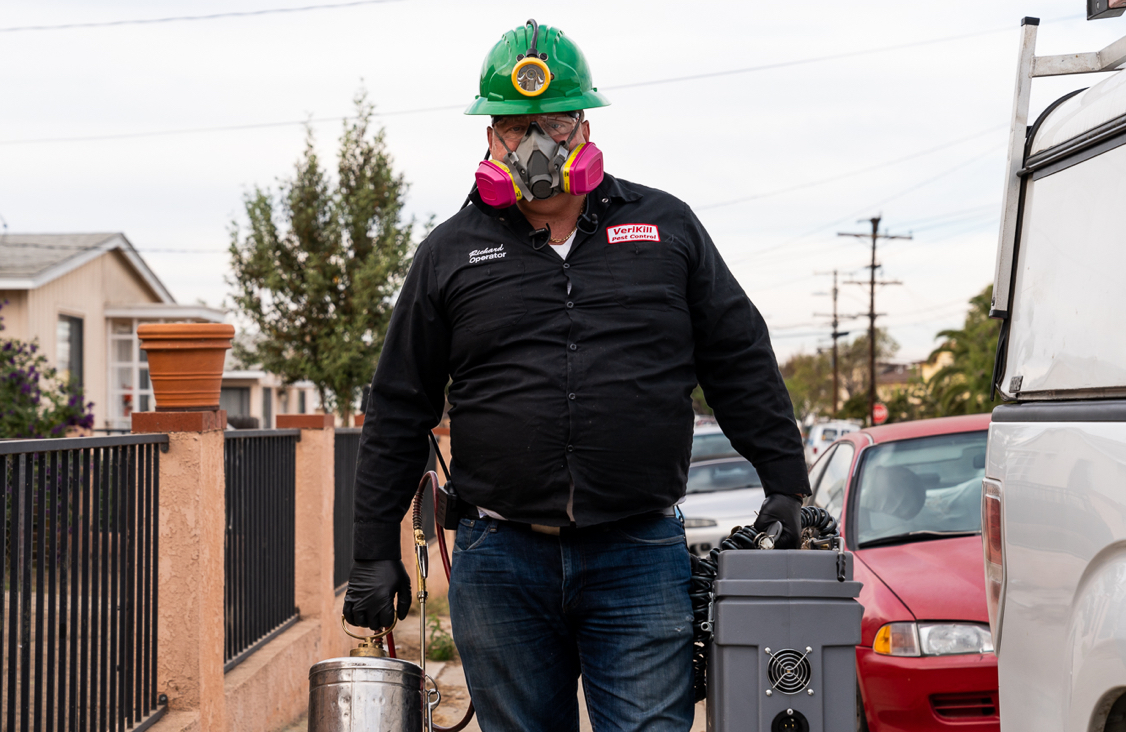
Working in the HVAC industry can be a lucrative trade, especially if you’re a technician running your own small business.
By investing a bit of time and resources, you can be your own boss, start a field service company from the ground up, and grow it at your own pace. There are some lessons you should know, though, before launching your service startup.
Your entrepreneurial idea first needs to become a legal entity before you can start building a business plan and gaining customers. We’ll warn you now: filing all the necessary paperwork, securing the required licenses, and purchasing the correct HVAC business insurance can be quite a headache. No one enjoys running routes through legal obstacle courses, but the fate of your business depends on this.
Need advice on how to jump over obstacles and dodge bullets on your way to starting your business? Today we’re here to talk about HVAC business insurance—a critical component for getting your startup off the ground (and keeping it afloat).
Our HVAC business insurance tips:
How much does HVAC Business insurance cost?
As a business owner, HVAC business insurance can help cover many aspects of your business. It’s important to note that HVAC business insurance can vary depending on the needs of your business.
In addition to insurance, you could also need worker’s compensation, commercial auto, and general liability. Depending on your needs, the cost of business insurance varies. Here is a general guide:
Professional liability $56/mo
Worker’s comp $111/mo
Business owner policy $101/mo
General liability $65/mo
It’s important to note that business insurance costs can vary depending on a number of situations including but not limited to:
Revenue: If you’re making more, this can translate to more of a risk for your insurance provider and higher costs
Employees: How many you’re employing at the time of getting insurance
Risk involved: Depending on the type of job how much risk does your business have
History of claims: How many, if any claims you’ve filed
Read below to learn more about requirements of your business insurance.
HVAC Business Insurance Requirements
Just like your HVAC certification, business insurance is another one of those necessities you’ll need before you can start performing any work in the heating, ventilation, and air conditioning industry.
As you may know, 20% of small businesses fail within the first year. That number jumps to 50% after year five. If you don’t want to become another statistic, staying on top of your annual legal obligations is a must.
#licensingrequirements
Do HVAC licensing requirements vary state by state?
Yes. HVAC business requirements are determined by local, state, and federal laws which vary depending on location.
In most cases, insurance is required to receive licensing, but not always—what’s optional in one state might be mandatory in another.
Take the state of Texas, for example. Technicians must be Air Conditioning and Refrigeration (ARC) certified by the state based on their unique requirements. Say you’re an out-of-state ARC Technician who wants to help out with the Texas disaster relief; unless you’re from South Carolina or Georgia (with whom the state reciprocates), you’d need to get a new in-state license and all work must be performed by a Texas ARC Contractor who holds the right amount liability insurance.
Different states and jurisdictions carry their own requirements for in-state HVAC insurance, including which types are necessary and which states are reciprocated. To find your local/state HVAC insurance and license requirements, head to HVACSchool.org.
Types of HVAC Insurance
Depending on your legal requirements and the structure of your HVAC business, there are different types of insurance you’ll want to consider purchasing.
- General liability insurance: protects against damages you (or your employee) might allegedly cause a third-party
This is at the top of our list because it’s the most important HVAC insurance you can purchase. General liability protects you from legal claims that might arise due to accidents. Depending on the damage, these claims can become incredibly expensive—you’ll definitely be happy your insurance company foots the bill. Recent data indicates that on average, general liability insurance costs between $398 to $1,204 annually for HVAC service techs.
- Worker’s compensation insurance: in case employees get injured on the job
This form of HVAC business insurance is mandatory for most states. The nature of your fieldwork can be rather risky, but Worker’s comp can help cover for medical bills for work-related injuries as well as protect against lawsuit costs. Even if you hire the most talented team of employees, you never know what can happen, so this insurance is an absolute must.
- Errors and omissions (E&O) insurance: if a customer sues you for not complying with a contract
Also known as professional liability insurance, this is designed to protect your HVAC business against civil lawsuits, negligence claims, and professional mistakes (as opposed to general liability, which covers accidents on the job).
Even if you’ve been working in HVAC for years, mistakes happen—but reputation matters. Errors and omissions insurance helps you move on quickly and smoothly from any client disputes, rather than turning into high-profile court cases with costly payouts.
- Auto insurance: for all your HVAC vehicles
A van or truck is a signature essential for all HVAC technicians who drive to customers’ homes all day long. Auto insurance protects your vehicle and your business fleet from the costs of car accidents, including legal expenses and repairs that might come up out on the road in between commutes. In January 2019, the price for commercial auto insurance typically cost between $1,267 and $4,199 annually.
hvac auto insurance
- Property insurance: if you own or rent your own facility
Property insurance for HVACs can cover supplies and equipment damaged or taken in the event of theft, fire, and other catastrophes. If you walk into your property to find it flooded with water damage, you can take a deep breath knowing your property insurance should help cover repair costs.
- Business owner insurance: bundles general liability with property insurance
You might be able to find an HVAC insurance provider who bundles these two insurance policies in order to offer a discount for both forms of insurance coverage.
Is contractor’s insurance different than HVAC insurance?
Yes. HVAC insurance is designed to cover business related to refrigeration, air conditioning, heating, and ventilation, whereas general contractors insurance covers for activities in:
- Carpentry
- Construction
- Electricity
- Landscaping
- Roofing
- … and so on
If your business is a Jack-of-all-trades type, consider purchasing general contractors insurance which would cover your HVAC jobs and other projects.
HVAC Insurance Coverage
Keep in mind that HVAC insurance for businesses is very different than the residential HVAC insurance your customers might own. The former covers you (and your employees) from professional, damage-related costs; the latter may be offered to homeowners as a part of their warranty or home insurance policy.
What does HVAC insurance cover?
Depending on the policy you have in place and which provider you choose, HVAC contractor insurance can protect against costs related to everything such as:
- Damage to expensive furniture caused by dropping a power tool
- Installation problems due to faulty hardware
- Moisture buildup due to improper ventilation
- An employee who slips and falls off a roof during installation
- The salary of an injured employee who can’t return to work
- A customer who accidentally cuts themselves on your sheet metal
- A lawsuit filed by a pedestrian who was struck by your company vehicle
- Automotive repairs following a car accident
- Replacing HVAC tools lost in a disaster
Are there other HVAC insurance benefits?
Absolutely. In addition to covering the costs of accidents and mistakes (because let’s be real, no one is perfect), insurance for HVAC benefits techs by:
- Getting you larger projects
Maybe you’re in the phases of starting a small residential HVAC business, but if you have your sights set on larger commercial projects, HVAC insurance can help get you there. Most of these contractors won’t even look at your bid if you don’t have insurance, so purchasing a policy can help show that you’re ready for the big leagues.
- Giving you the freedom to recommend
As you start out with your new HVAC company, you’ll probably run into some growing pains and might realize you don’t know exactly everything that you thought. Instead of packing up and calling it quits, enjoy peace of mind knowing your E&O insurance has you covered if your recommendation is ever wrong.
HVAC Business Management
HVAC insurance, along with required certifications and licensing obligations, is unfortunately part of the legal legwork you have to put in to start your own company, whether or not you think the benefits are worth the cost.
How much does HVAC insurance cost?
Insurance for HVAC techs can cost anywhere between $300 and $10,000 annually, depending on premiums and deductibles. As you plan the financial forecast of your HVAC startup, it’s always best advice to speak to an advisor who can give you the best advice on which HVAC insurance to purchase depending on your business needs.
Regardless of whoever you talk to, there’s no getting around it: HVAC business insurance is a necessary business expense you’ll need to manage (along with your supplies, vehicle fuel, taxes, bank fees, the list goes on…).
However, this cost could be well worth the price if a catastrophe happens in the future. An accident could wipe you out flat, but HVAC contractor insurance can save the life of your business investment and its profits. After all, you can never put a price tag on peace of mind!
HVAC Software from Housecall Pro
Between juggling HVAC insurance policies, legal documentation, and finally growing your business, you have enough things to worry about. Take advantage of Housecall Pro’s HVAC software to streamline all your booking, scheduling, invoicing, and communication tasks—your journey to entrepreneurial success will become significantly less stressful.











